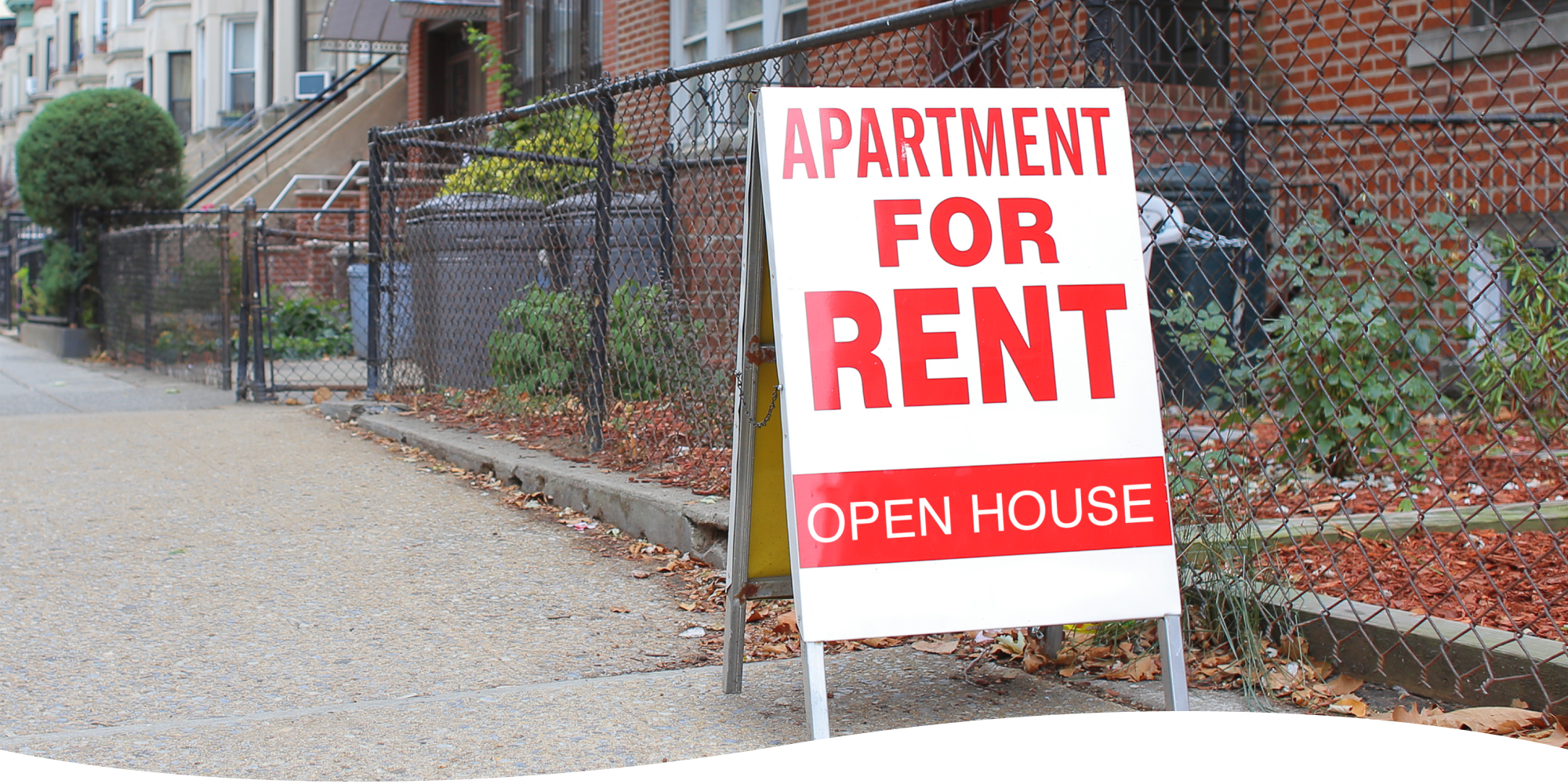Goodcover’s Guide to Ohio Rent Increase Laws: Know Your Rights as a Renter
19 Jul 2024 • 6 min read

Rent increases are a harsh reality for many Ohioans, and they’re leading to hard choices.
Over the past five years, rent for a 2-bedroom apartment in Ohio has increased 27%. And in big cities like Cinncinati and Columbus, rent has gone up over 30%. For most, that rental rate bump is another $300 to $400 a month, competing with your other bills.
Trying to find where to cut is hard. Do you not buy groceries or do you put off paying that power bill? When you’re already stretching your budget to cover rising costs, the last thing you need is another massive bill eating away at your paycheck.
That’s why understanding Ohio’s rent increase laws can help protect your financial well-being in case of an unexpected rent hike. In this guide, we’ll break down The Buckeye State’s rent increase laws, including how much notice your landlord needs to give you and what you can do if you’re facing a rent increase.
Let’s dive in.
- What Are the Rent Increase Laws in Ohio?
- Understanding Ohio’s Landlord-Tenant Laws
- What To Do if You’re Facing an Unreasonable Rent Increase
- Final Thoughts: The Renters Guide to Ohio Rent Increase Laws
What Are the Rent Increase Laws in Ohio?
Unfortunately, Ohio has no state-wide rent control laws, meaning landlords can generally raise the rent by any amount they want. In fact, Ohio decisively limited rent control and rent stabilization in 2022 to avoid future state law protections for renters facing rent increases.
However, there are some rules on how rent increases are handled. If you’re in the middle of a lease, your landlord can’t suddenly decide to raise rent unless your lease agreement specifically allows it. They have to wait until the term of the lease is up before they can change the rent amount.
Even when your lease ends, landlords are usually required to provide proper notice before increasing your monthly rent. In most cases, they must give you 30 to 60 days' notice, depending on the specifics of your situation and the terms of your lease.
Additionally, local governments seem hesitant to provide city-level rent protections. None of Ohio’s major cities, including Columbus, Cleveland, Toledo, and Cincinnati, have any rent control ordinances in place.
While the absence of rent control laws may seem scary, understanding your rights as a tenant and being aware of disclosure requirements for rent increases can help you with potential changes to your rental agreement.
Understanding Ohio’s Landlord-Tenant Laws
As a renter in Ohio, you want to know your rights and responsibilities, plus what your landlord is on the hook for. Let’s break down what you can do if you’re facing an unreasonable rent hike.
What Your Landlord Is Required To Do
You deserve a safe space, and your landlord must keep your home in good working order. Legally, your landlord must keep your home in a safe and habitable condition for occupancy. That usually includes handling major repairs, ensuring the property meets building and safety codes, and making sure basic services like heat and running water are available.
If your landlord fails to live up to these duties, even if you have unpaid rent, you can contact local housing authorities for help or seek legal advice if you plan to sue.
What You’re Required To Do as a Renter
Renters also have responsibilities in Ohio. These include making on-time rent payments, taking reasonable care of the property, adhering to the terms of their lease agreement, and being considerate of their neighbors.
Part of being a responsible renter Ohio renters insurance from a trusted provider like Goodcover protects your belongings, provides liability coverage, and shows your landlord that you’re proactive about managing potential risks.
The Eviction Process in Ohio
If you fail to pay rent month-to-month or violate any terms in your lease, your landlord may initiate the eviction process. In Ohio, landlords must follow a specific legal procedure, which includes providing written notice and filing a court case.
If you are facing eviction, it’s crucial to understand your rights and seek assistance from local legal aid organizations or tenant advocacy groups that can guide you through the process and help protect your interests.
Protection Against Retaliation and Discrimination in Ohio
According to the Federal Fair Housing and Equal Opportunity (FHEO) office, Ohio law protects tenants from landlords retaliating against them for exercising their legal rights, such as requesting repairs or joining a tenant organization.
Additionally, discrimination based on protected classes, such as race, gender, or disability, is illegal.
If you believe you’ve been subjected to retaliation or discrimination, you can file a complaint with the Ohio Civil Rights Commission or the U.S. Department of Housing and Urban Development (HUD) for investigation and potential legal action.
What To Do if You’re Facing an Unreasonable Rent Increase
If you end up facing an unreasonable rent increase, here are some steps you can take to address the situation:
Review Your Lease Agreement
Your lease is a binding contract, and it should outline the terms and conditions of your tenancy, including any provisions related to rent increases.
Take the time to read through your lease carefully, paying special attention to sections that discuss rent, rent increases, and the procedure for implementing those increases.
If your landlord or property management company has failed to follow the proper procedures or has violated any of the terms outlined in your lease, you may have grounds to negotiate with your landlord or even challenge its validity.
By understanding your rights and your landlord’s obligations, you’ll be better equipped to advocate for yourself and ensure that you’re being treated fairly.
Talk to Your Landlord
If you have a history of being a reliable tenant, approach your landlord to discuss the rent increase. While negotiating your rent might seem awkward, here are some actionable steps you can take.
- Check lease terms first.
- Submit negotiation requests in writing.
- Reference market rates and figures.
- Start by suggesting at least 10% less than the proposed amount.
Consider Alternative Housing Options
Since Ohio’s rent increase laws don’t have rent rate caps, you might find the new rent unaffordable. If your landlord is unwilling to negotiate, it may be time to consider different housing options.
While moving can be stressful and time-consuming, it may be the best way to protect your financial well-being and ensure you have a safe and comfortable place to call home.
Here are some tips to help you find a perfect new home:
Start your search early
As soon as you realize that you may need to move, start looking for available housing in your area. Local real estate agents can often help if you are unfamiliar with the area.
Use online resources to your advantage
Websites like Zillow, Apartments.com, social media, and local classifieds can help you find available homes and apartments in your area. Remember to watch out for signs of a rental scam.
Expand your search radius
If you’re having trouble finding affordable places to rent in your current neighborhood, consider looking in nearby areas or cities with more affordable housing options.
Factor in moving costs
When budgeting for your new place, remember to account for expenses like hiring movers, renting a truck, or paying for storage.
Consider alternative housing arrangements
If traditional apartments and homes are out of your price range, consider looking for alternative arrangements like subletting, renting a room in a shared house, or even moving in with family or friends temporarily while you search for a more permanent solution.
Seek Legal Advice
If you suspect your landlord has violated the terms of your lease, engaged in discrimination, or acted in bad faith, seek advice from an attorney specializing in landlord-tenant law or consult a local tenants’ rights organization.
Start by documenting all communication with your landlord and keeping records of any actions they take that you believe are unlawful. Then, reach out to a local tenants’ rights organization like the Ohio Tenant Advocacy Project or the Ohio State Legal Services Association for advice and support.
Final Thoughts: The Renters Guide to Ohio Rent Increase Laws
Here are some additional resources to get you started with understanding your rights as a renter:
- Know Your Rights as an Ohio Tenant
- Ohio Tenant-Landlord Handbook
- Renters & Tenants Rights
- Tenant Resources
- Tenant Rights, Laws, and Protections
Navigating rent increases as a renter in Ohio can be stressful, but by understanding your rights and the laws surrounding rent increases, you can make the experience smoother.
While rent increases are a reality for many Ohioans, you don't have to face them alone. Arm yourself with information, know your options, and remember that affordable renters insurance from Goodcover can provide peace of mind in an uncertain rental market.
Note: This post is for informational purposes; insurance regulation and coverage specifics vary by location and person. Check your policy for exact coverage information.
For additional questions, reach out to us – we’re happy to help.

More stories
Team Goodcover • 19 Aug 2024 • 10 min read
Colorado Rent Increase Laws: A Comprehensive Guide for Renters
Team Goodcover • 16 Aug 2024 • 2 min read
Goodcover Weekly Recap | Week of August 11, 2024
Team Goodcover • 19 Jun 2024 • 6 min read
New Jersey Rent Increase Laws: Know Your Rights
Team Goodcover • 10 Jun 2024 • 5 min read
Understanding Washington State’s Rent Increase Laws
Team Goodcover • 24 May 2024 • 7 min read




